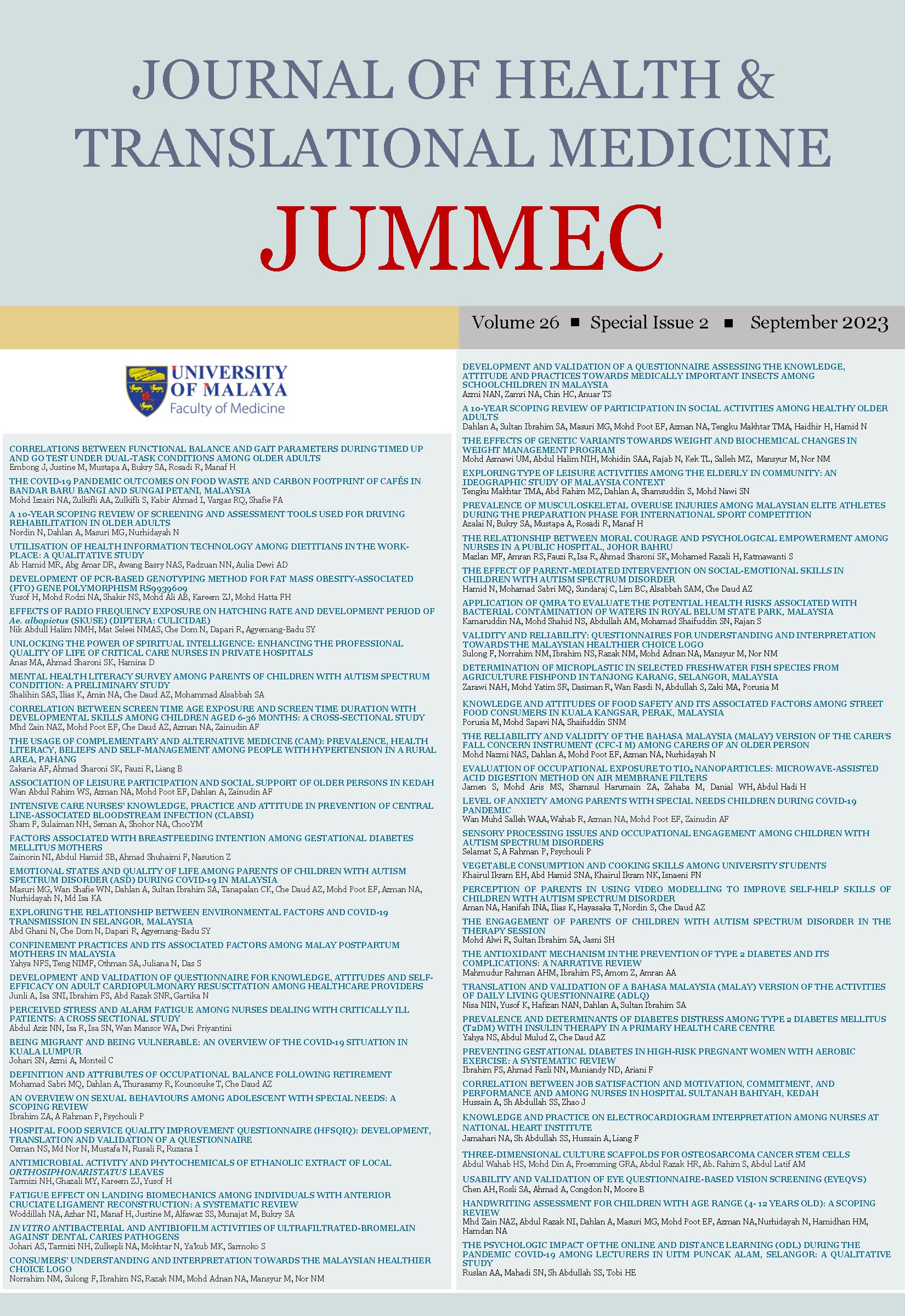ASSOCIATION OF LEISURE PARTICIPATION AND SOCIAL SUPPORT OF OLDER PERSONS IN KEDAH
Received 2023-07-07; Accepted 2023-08-09; Published 2023-09-15
DOI:
https://doi.org/10.22452/jummec.sp2023no2.11Keywords:
Older Persons, Leisure Participation, Social Support, KedahAbstract
Reaching towards ageing nation in 2030, Malaysia prepares its older persons to be in better conditions with provision of a better long-term care emphasizing health, well-being, and quality of life with one of its components to be engaged in leisure activities. Older persons known to occupy their free time with leisure activities as their daily occupation. However, those activities were restricted while pandemic affecting all population globally. This study identified if the leisure participation still engaged by older persons during the post-pandemic era. A cross-sectional study enrolled 137 older persons living in Kedah via purposive sampling. Leisure Participation Questionnaire was utilized to measure the leisure activities participated by the older persons. Majority of older persons engaged in leisure activity during the post pandemic era with reading (n = 107, 78.1%), watching television (n = 98, 71.5%), cooking or baking (n = 94, 68.6%), chit-chatting (n = 88, 64.2%), and less than half spending time with grandchildren (n = 66, 48.2%). Cognitive, productive and recreational leisure activity are dominant among female while male only dominant at social leisure activity. The productive leisure activity shown a significant association with social supports received from family members rather than friends (p < 0.05). Older persons were highly engaged in indoor-type specifically cognitive activities in comparison with outdoor-type recreational activities as their leisure during the post-pandemic era. This findings as an eye opener for the community to engage and expose in various types of leisure. Besides, professional and carers would be responsible to educate and develop significant intervention strategies for integrating leisure as a means of improving quality of life and well-being to promote healthy aging.
Downloads
Downloads
Published
Issue
Section
License
All authors agree that the article, if editorially accepted for publication, shall be licensed under the Creative Commons Attribution License 4.0 to allow others to freely access, copy and use research provided the author is correctly attributed, unless otherwise stated. All articles are available online without charge or other barriers to access. However, anyone wishing to reproduce large quantities of an article (250+) should inform the publisher. Any opinion expressed in the articles are those of the authors and do not reflect that of the University of Malaya, 50603 Kuala Lumpur, Malaysia.


